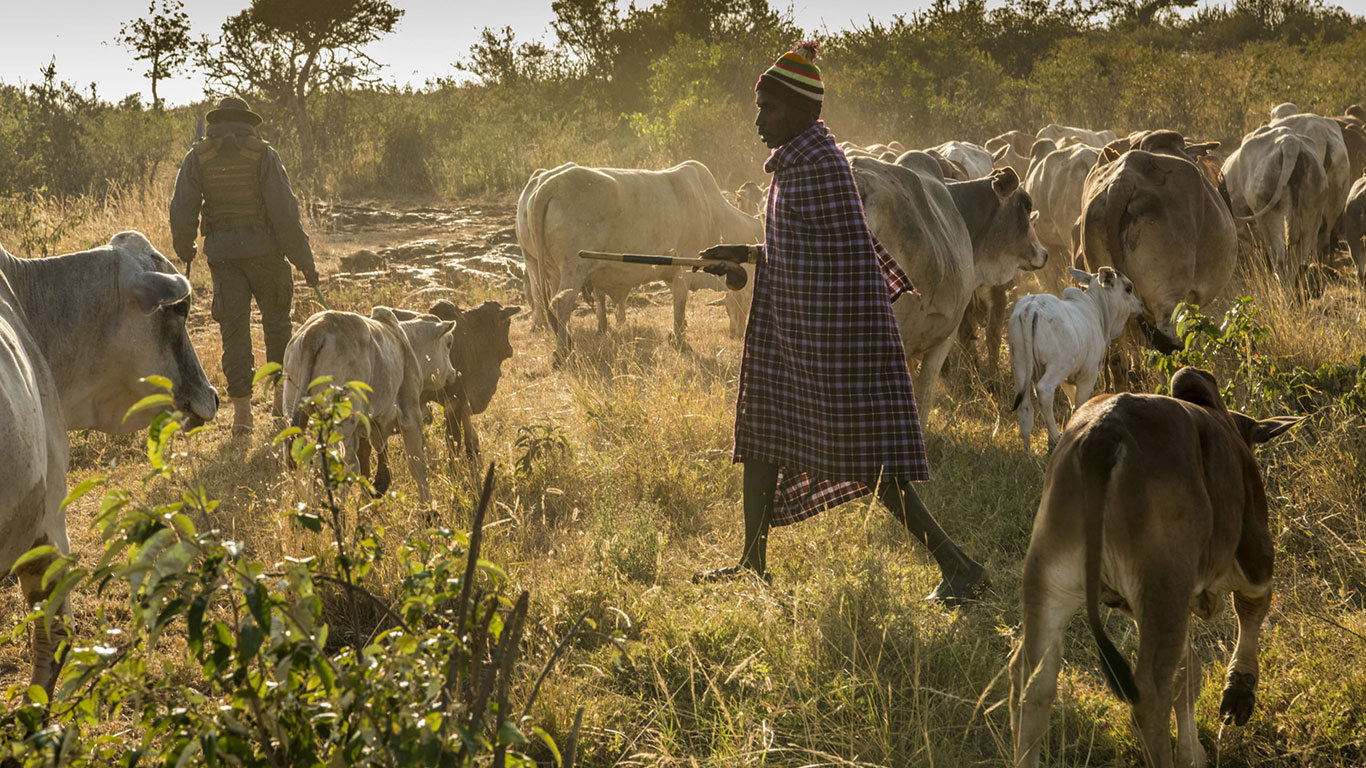
By Hannah Campbell
Imagine waking up to find that you had lost your job and your life’s savings all in one night. You’d understandably hate whatever was responsible for your loss, and may even go out of your way to destroy it.
This is how a herder feels when he loses his entire herd of goats to a leopard or other predator attack during the night. As tourists and conservationists, we see these animals as magnificent cats that should be protected from extinction, but to the pastoralist communities that surround Loisaba, they can be a huge risk to their livelihoods.
For the conservation of wildlife to be successful, it is vital that the people these species share their habitat with are also committed to their survival, and see a benefit and value to their existence. A new coexistence model known as Baotree was recently trialled here at Loisaba, in partnership with Lion Landscapes. Designed and led by Dimitri Syrris, Baotree aims to provide local communities with a mechanism to actively earn community development goals, through carrying out conservation-based activities, thus engaging in the protection of their environment and their livelihoods. This approach keeps the responsibility for natural resource management firmly within the communities, whilst supporting and catalyzing the development of conservation-based activities.
“It is critical that, for conservation of wildlife and associated biodiversity to be successful, the custodians of existing ecosystems that support the magnitude of biodiversity required for the survival of large carnivores and other mega-fauna can benefit directly from that conservation. Loisaba Conservancy seeks to scale the impact of wildlife, livestock and community coexistence. What is needed is an inclusive approach that will promote diversity and achieve a credible, measurable result.”
– Dimitri Syrris
The model works by assigning conservation tasks known as ‘gigs’ to communities, such as reporting a lion sighting to assist with research and strengthening their boma to help reduce human wildlife conflict. Each of these gigs is rewarded with a conservation currency, “bao-points”, which are then exchanged for a community benefit. The more important the gig for conservation, the more bao-points earned!
During the trail, the following steps were carried out:
- The Baotree concept was presented to the chief, chairman and community members of Koija
- Priority needs were agreed with the community members
- Baotree community volunteers were identified and provided with a unique Baotree ID, registered to their community
- In collaboration with Loisaba Conservancy and Lion Landscapes, the Baotree gigs were designed to support localised conservation efforts
- Baotree printed a list of gigs that the community could complete in order to earn Bao-points (each gig had a specified evidence requirement) – the value of each gig was not shared with the community during this pilot to ensure there was no skew re which gigs were completed
- The Bao-crew reported the gigs via phone call, which were then validated by members of Loisaba staff
- On completion of the Baotree pilot, a community meeting was held to signify the end of the test period, and to discuss implementing the community project goals.
The pilot was a great success, with Koija community earning a total of 2,732 Bao-points after completing 125 gigs. Information from community meetings and a recent survey showed that within these communities, the men would like to see their livestock better protected and the women would like a better understanding of healthcare.
Baotree allowed the installation of 15 predator-proof bomas, along with a five day healthcare training workshop that covered prevention of disease, basic first aid, nutrition and health and the dangers of drug abuse.
Dimitri is currently working on the next steps, with the success of the pilot pushing him forward. A core focus is on scaling the solution through a technology facilitation platform – where all stakeholders within conservation, communities and the international world will have a positive return on impact. Dimitri is a strong believer in Baotree and his vision for coexistence to be key in unlocking a new type of digital independence within the African continent.
Staying at Elewana Loisaba Tented Camp, Elewana Loisaba StarBeds and Elewana Loisaba Lodo Springs helps ensure Loisaba Conservancy remains a catalyst for conservation, wildlife research and community development.
Loisaba’s mission is to protect and enhance critical wildlife diversity, abundance and habitat in the landscape, which sits on the western edge of one of Kenya’s most important elephant movement corridors. The profit from Elewana Loisaba Tented Camp, Elewana Loisaba Star Beds and Elewana Loisaba Lodo Springs, along with revenue from livestock, brings us closer to achieving our ultimate aim of creating a sustainable conservancy providing protection of endangered species and their habitat, as well as over 300 jobs to the local community.

